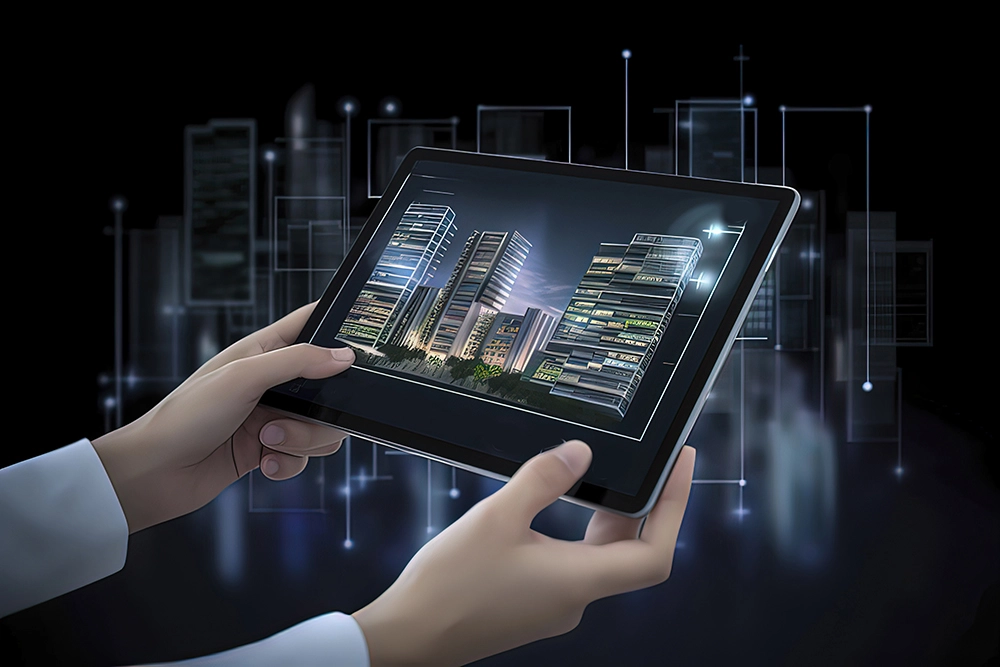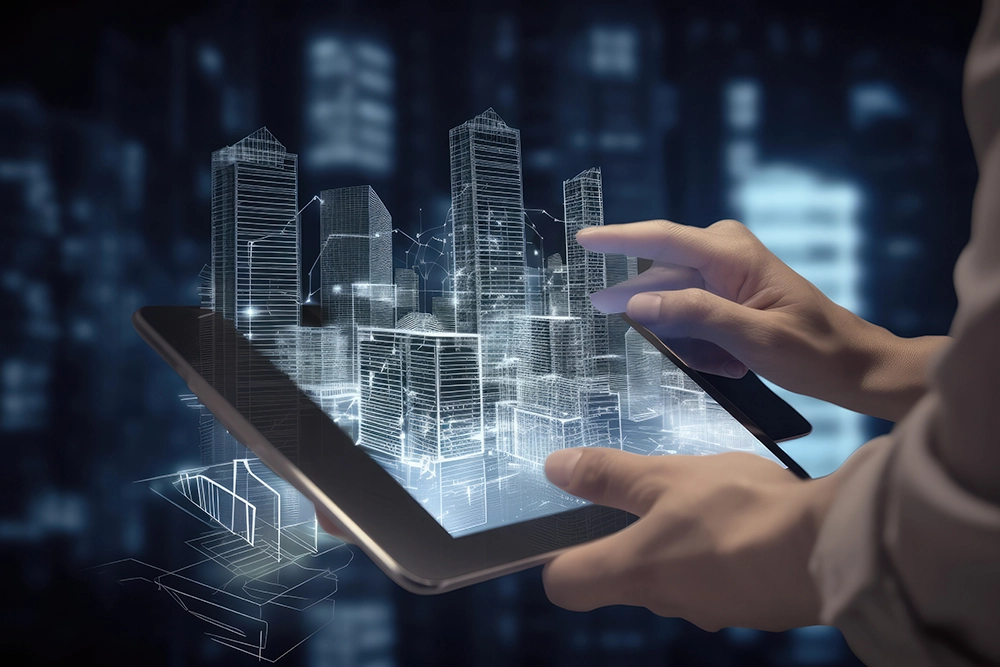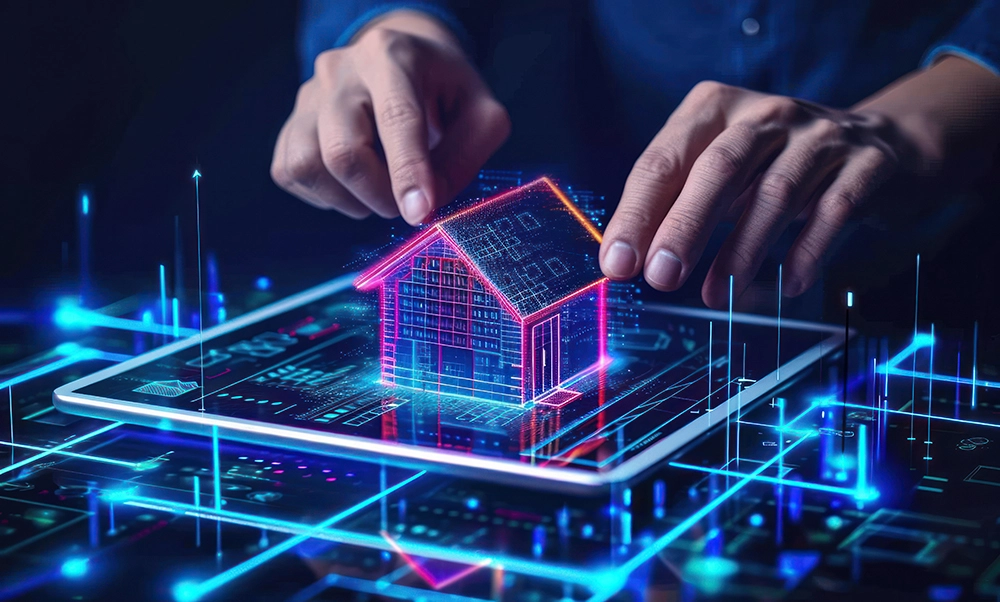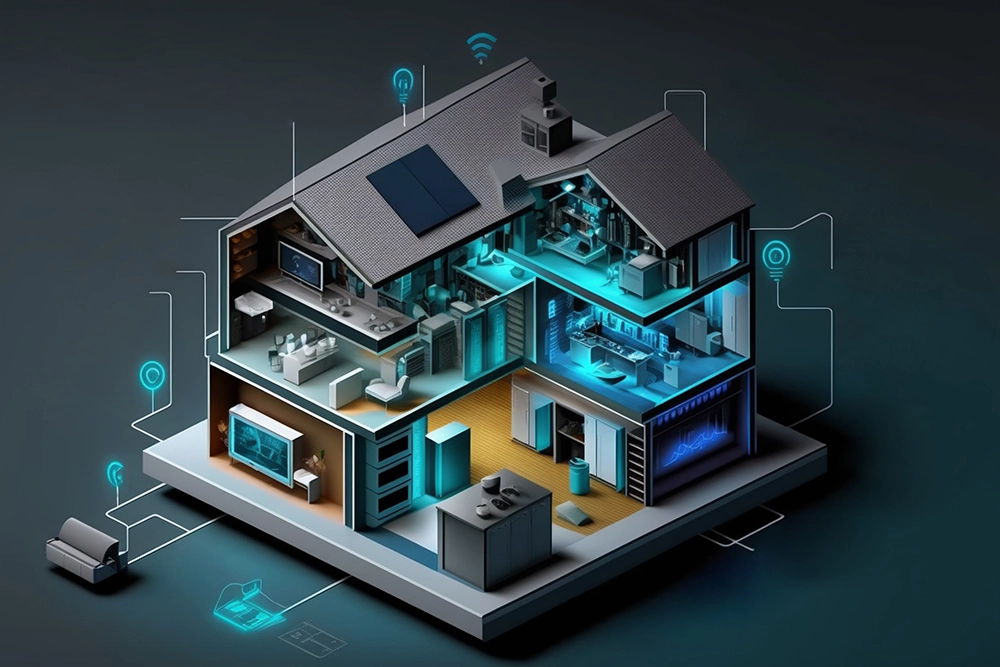
Manages interactions with leads, buyers, and sellers.
Centralized database for property listings and market data.
Track and manage the entire transaction process, ensuring all tasks are completed.

IT systems can streamline property management by centralizing data and automating processes.
They include lease management, maintenance requests, tenant communication, and financial reporting.automating processes.
Improve tenant satisfaction, optimize property operations, and facilitate better decision-making for property owners and managers.automating processes.

CRM systems help real estate agents and agencies manage client interactions and relationships.automating processes.
Track leads, manage contacts, schedule follow-ups, and analyze customer data.automating processes.
Enhance customer service, personalize marketing efforts, and increase client retention and satisfaction.automating processes.

Websites and mobile apps provide a platform for listing properties, searching for properties, and connecting buyers, sellers, and agents.
Advanced search filters, virtual tours, high-quality images, and interactive maps.automating processes.
Expand market reach, attract more potential buyers and renters, and facilitate easier property discovery and comparison.automating processes.

Data analytics tools analyze market trends, property values, demographic insights, and investment opportunities.automating processes.
Predictive analytics, comparative market analysis (CMA), and real-time market updates.automating processes.
Enable informed decision-making, identify investment opportunities, and optimize pricing strategies.automating processes.

VR and AR technologies create immersive property tours and visualizations.automating processes.
Virtual property walkthroughs, 360-degree views, and augmented property staging.automating processes.
Enhance remote property viewings, reduce travel time for clients and agents, and improve property marketing effectiveness.

Blockchain technology offers secure, transparent, and efficient property transactions.
Smart contracts for lease agreements and property sales, digital property records, and immutable transaction history.
Reduce fraud risks, streamline transaction processes, and enhance trust and transparency in real estate transactions.

IoT sensors and predictive analytics can monitor building systems and infrastructure.
Proactive maintenance alerts, energy efficiency optimization, and asset performance monitoring.
Reduce maintenance costs, minimize downtime, and prolong the lifespan of real estate assets.

IT systems monitor and optimize energy consumption in buildings.
Energy usage tracking, smart HVAC systems, and automated lighting controls.
Lower utility costs, achieve sustainability goals, and improve occupant comfort and satisfaction.

IT systems integrate security solutions such as surveillance cameras, access control systems, and alarm systems.
Remote monitoring, real-time alerts, and biometric access.
Enhance property security, deter unauthorized access, and provide peace of mind to property owners and tenants.

IT systems manage compliance with local laws, regulations, and industry standards.
Automated compliance checks, document management, and regulatory updates.
Ensure legal compliance, mitigate risks, and avoid penalties or fines.